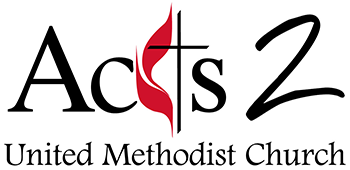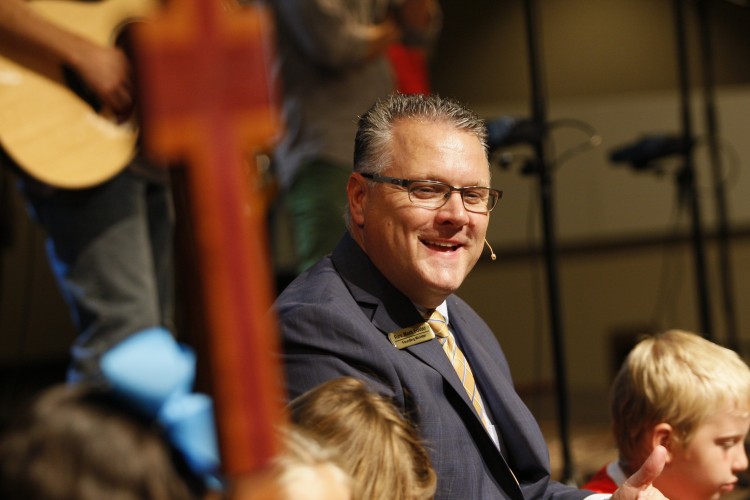This article is featured in the Jan. 20 edition of the Edmond Sun.
When I was a kid, my dad was a pastor in traditional churches. I was an acolyte. I met the choir in the narthex dressed in my alb and armed with my candlelighter. I had the pre-service checklist including checking the taper to make sure I had enough wick so the flame would not go out. I was ready to lead the choir processional from the nave to the chancel. I sat on the lectern side of the altar. I participated in the anthem and led the recessional following the “Gloria Patri,” “Doxology,” “Homily,” and “Benediction.” If you are still reading this, you might be a “high church” person and have said under your breath, “And also with you.”
We all want to be a part of something we can understand but also has some mystery to it. We all want to experience real connection with others but not at the cost of who we really are. Researcher Brené Brown writes that people today are “feeling more afraid to disagree or debate with friends, colleagues, and family because of the lack of civility and tolerance.” She says her research shows a deep hunger for connection or what she terms “true belonging.” Can you truly belong to a group of people who hold different views on politics, scripture, religious tradition, fiscal policy, communion juice versus wine, sugar donuts versus powdered donuts? Yes, but it takes a vision greater than any one of those divisive issues. It takes the person of Jesus who came to the world “full of grace and truth.” Both grace and truth are necessary for transformation, for heaven to come to earth.
We open worship with these words, “Good morning saints!” and the people respond, “Good morning!” and, “Good morning sinners!” and the people respond, “Good morning.” We are both saints saved by the grace of God but also still sinners in need of redemption daily. Dr. Henry Cloud writes, “The sad thing is that many of us come to Christ because we are sinners, and then spend the rest of our lives trying to prove that we are not!”
Compare a modern-day church with an AA group. In many churches, the good people of town, or the right people, attend and over time it becomes culturally unacceptable to have problems; being sinful. In the AA group, it is culturally unacceptable to be perfect; being in denial. Dr. Cloud writes that in a legalistic church, “people look better but get worse,” and in the AA group, “they look worse but get better.” Wherever we find both grace and truth, people get better.
So, how good do people have to be to be a part of a church? How good must we continue to be once we are in? Which sins get you the boot and which are overlooked? Who decides? In church life, the answer is “It depends” and it changes over time.
The Bible records this discussion happening in the early church in the book of Acts chapter 15. Biblical scholars write that the early church understood the dispute as a movement of God’s Holy Spirit! By the unified testimony of Peter, Paul, and Barnabas, and the decision of James (Jesus’ brother), the first-century church worked and modeled addressing differences among believers as a tension to manage together and not a problem to solve or question to answer.
What was the dispute? Twenty years after the resurrection, the church found itself struggling with questions of participation and salvation, particularly with non-Jewish folk. How Jewish did the non-Jewish people have to be to get in? BTW for most of us reading this, we are the non-Jewish group in question. How could non-Jewish people participate as a part of this new faith-group made up of Jews who followed Jesus as the Messiah? Previously, the non-Jews known as Gentiles had worshipped a large number of Greek and Roman gods which included going to multiple temples and participating in practices highly offensive to Jews.
In response, some Jewish teachers said, “Unless you are circumcised according to the custom of Moses, you cannot be saved.” Peter, the founder of the church, said, “No! We believe it is through the grace of our Lord Jesus that we are saved, just as they are.” In this one move, Andy Stanley writes more than “six hundred commandments plus commentary” were at stake. The Jerusalem Council sent word to Gentile believers around the known world, “Be careful what you eat around your Jewish brothers and don’t be immoral. That’s it.” Over time, this text, which was radically inclusive, has been used to exclude. The message almost always drifts back to “church is for church people signing up for a certain brand and willing to abide by both the spoken and unspoken rules of the dominant culture of the time.”
The founder of the church, Peter was clear, “no distinction between them and us.” Let us be as clear.


